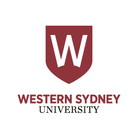Bachelor of Clinical Science (Medicine)/Doctor of Medicine (MD)
Bachelor of Clinical Science (Medicine)/Doctor of Medicine (MD)
Make a difference in your community with the new Joint Program in Medicine from Western Sydney University and Charles Sturt University. From 2021, Western Sydney and Charles Sturt University will be delivering a Doctor of Medicine (MD) course together. The Joint Program in Medicine is a five-year undergraduate entry degree…
Categories
COURSE DESCRIPTION
Make a difference in your community with the new Joint Program in Medicine from Western Sydney University and Charles Sturt University.
From 2021, Western Sydney and Charles Sturt University will be delivering a Doctor of Medicine (MD) course together. The Joint Program in Medicine is a five-year undergraduate entry degree that qualifies you to be a medical intern in Australia and New Zealand.
Successful applicants study their degree either in the Greater Western Sydney region at Western’s Campbelltown campus or in the Central NSW region at the Charles Sturt University, Orange campus.
Western Sydney and Charles Sturt both have a strong commitment to the regions in which they are located. The medical program combines problem-based learning and clinical practice. The program is designed to provide you with the knowledge, skills and experience to make an important contribution to the community’s health and wellbeing.
Advances in medicine rely on advances in knowledge. It’s why over 10 years ago Western created a new kind of School of Medicine. Since then, we’ve seen more than 600 graduates enter the medical profession and make a difference. From 2021, Western is joining with Charles Sturt in making this program available on both sides of the Blue Mountains.
Whether in Campbelltown or Orange, you will have access to state-of-the-art research facilities. The Clinical Schools out of which you will be based, along with our campus base in Campbelltown and Orange are brand new and purpose built specifically for our students. Four themes run throughout this course: patient care, health in the community, personal and professional development, and scientific basis of medicine. Clinical learning begins from the first weeks and as you work with and learn from real patients. You will be supported by small-group collaborative learning at the bedside and on campus that continues throughout the program. Applying the biomedical sciences to clinical problems, you will acquire and practice clinical and research skills as you build your portfolio of evidence of your learning.
You will extend and apply your knowledge and practical skills in full-time clinical and community placements including in Aboriginal Medical Services, complete a scholarly project and build your clinical experience through placements in specialty and subspecialty medicine.
Your career
Be ready for your internship and training in a specialty of your choosing.
As a graduate from this degree, you can look forward to career opportunities including:
Medical Practice (General or Specialized Doctor)
Medical Administration
Medical Research
Medical Teaching
REQUIREMENTS
An applicant for a PhD program must either hold: A Master’s degree by research, or A Bachelor (Hons) degree with Class 1 or Class 2 division 1 honours, or A demonstrated capacity for research in a discipline deemed to be acceptable to the university.
English Language Requirements:
IELTS: 7.0 overall score, minimum 7.0 in each subtest; TOEFL internet-based score: Total score 100; Writing 27, listening and reading 24 and speaking 23; Pearson Test of English Academic (PTE): 65 overall; minimum 65 in each of the four skills Writing, Speaking, Listening and Reading in one sitting.
EDUCATIONAL INSTITUTION
Western Sydney University is located in New South Wales and operates out of 13 accessible campuses across Sydney (Bankstown, Liverpool City, Campbelltown, Sydney City, Sydney Olympic Park, Parramatta, Parramatta City, Westmead, Penrith and Hawkesbury). The student body numbers more than 35,000. With a mix of modern high rise and heritage buildings, equipped with technology-enabled learning facilities, libraries, research facilities, and studios, the University covers a wide range of academic programs including the School of Business, School of Computer, Data and Mathematical Sciences, School of Education, School of Engineering, Design and Built Environment, School of Health Sciences, School of Humanities and Communication Arts, School of Law, School of Medicine, School of Nursing and Midwifery, School of Psychology, School of Science, School of Social Sciences and the Graduate Research School.




